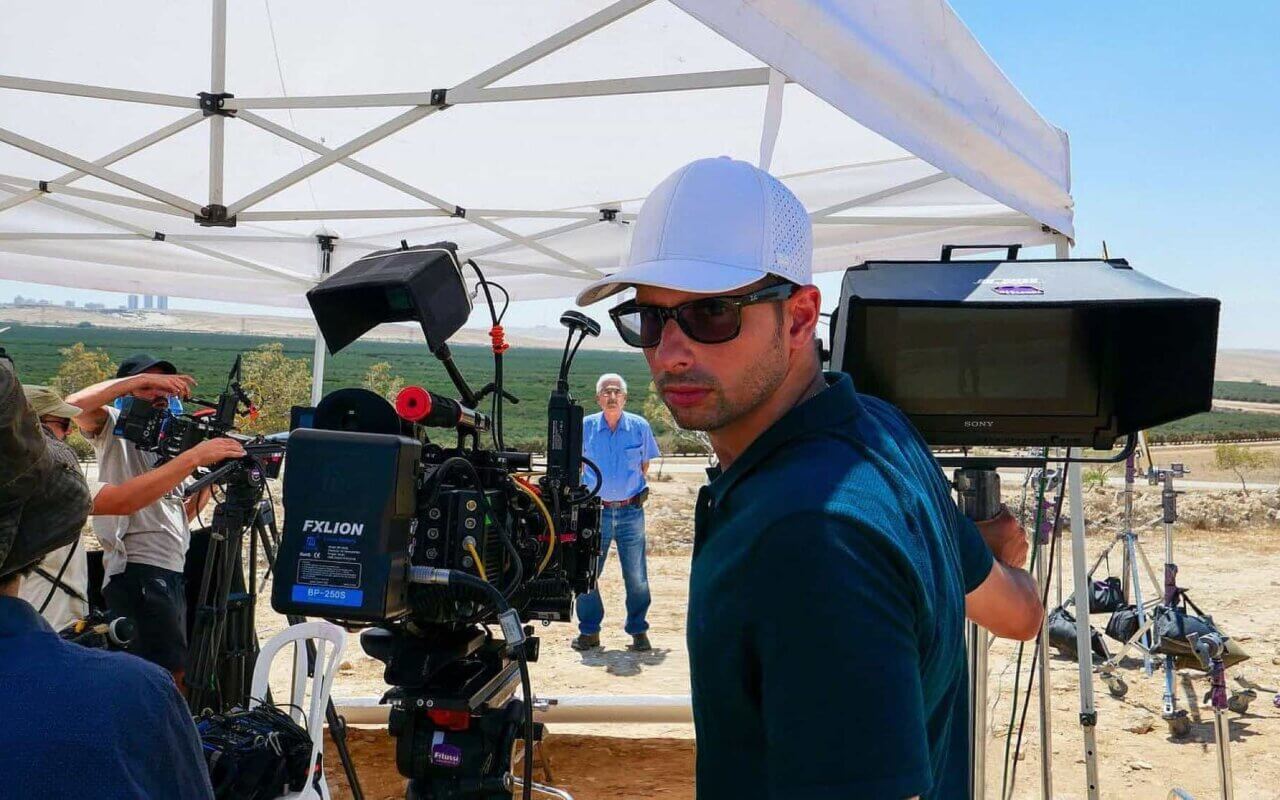Original Article is Published at JNS.org
“They felt that solving the Middle East’s water problem may lead to peace,” said Ellen Marcus of the infusion of money her parents gave to Ben-Gurion University of the Negev in Beersheva.
Ellen Marcus had no idea how rich her simple, unassuming, Holocaust refugee parents, Howard and Lottie Marcus, were until their estate planner told her. She shared the climactic story of that discovery, in addition to their life, their interest in water resources in Israel and throughout the Middle East, and their eventual donation of $500 million to Ben-Gurion University of the Negev in Beersheva, the largest philanthropic donation to Israel in the history of the Jewish state.
“They felt that solving the Middle East’s water problem may lead to peace,” said their daughter.
She talked about the legacy of her parents following a Feb. 6 screening of the 90-minute documentary made about her parents, “Who Are the Marcuses?” at the Marlene Meyerson Jewish Community Center in New York City, in partnership with Americans for Ben-Gurion University, attended by about 100 people.
The film was directed by Matthew Mishory with cinematographer Michael Marius Pessah.
Young dentist Hans (“Howard”) and his wife, Lottie, who were proud Germans, recognized the warning signs in 1933 when he was barred by Nazi guards in April 1933 from entering the building that housed his office. They fled to Naples, Italy, where Ellen Marcus recounted just how dire their situation was. “This wasn’t in the film—he had to sleep in a tub or on the couch of his waiting room. He varied his diet—milk with bread and bread with milk,” she said, tongue in cheek.
He also suffered from tuberculosis and typhus, both incurable at the time, she said.
When a dental patient who worked for the British consul general was unwilling to help him escape Mussolini’s Italy for England, another patient who worked for the American consul general’s office creatively completed paperwork that allowed the couple to relocate to the United States, despite strict restrictions on immigration.
Once there, Lottie began working at a Jewish investment firm, and the two befriended, Ben Graham, known as the father of value investing and the author of The Intelligent Investor. He recommended contacting one of his mentees—a young investor named Warren Buffett, who worked for him in 1954 before returning to Omaha, Neb., to start what would become Berkshire Hathaway, the multinational conglomerate holding company.
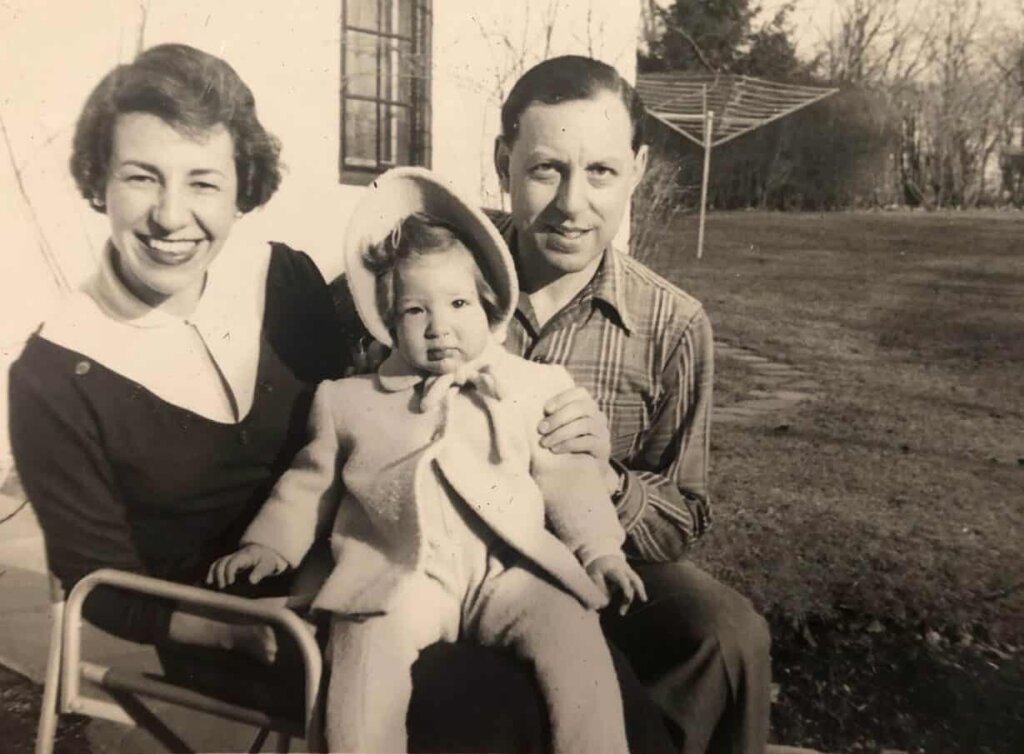
Howard and Lottie Marcus with their daughter, Ellen. Credit: Courtesy of the film, “Who Are the Marcuses?”
The film refers to the Marcuses’ “buy and hold ’em for life” approach to investing in the stock market. Over time, their initial modest investment grew to stock holdings worth approximately $200 million. Stalwart supporters of Israel, the couple eventually decided to invest their fortune in water technology and research by donating to BGU.
Howard died at the age of 104 in 2014; Lottie died in 2015 at the age of 99. BGU announced the large endowment from the Marcus estate in June 2016. By the time the stocks were transferred to the university, their value had risen to $500 million.
‘The transformative power of education’
The film features footage of the Marcuses in Germany, Italy, the United States and Israel, and serves as a virtual “who’s who” of Israeli academics, politicians and thought leaders, including past and current presidents of BGU Daniel Chamovitz, Rivka Carmi and Avishay Braverman; Israel President Isaac Herzog; American-born Israeli author Daniel Gordis; former Prime Minister Shimon Peres; and others. All offered insightful, sometimes humorous insights.
Buffett said: “They made a wise choice—to do something that wasn’t getting done.” The late Peres offered: “The Marcuses flew coach so Israel can fly first class!”
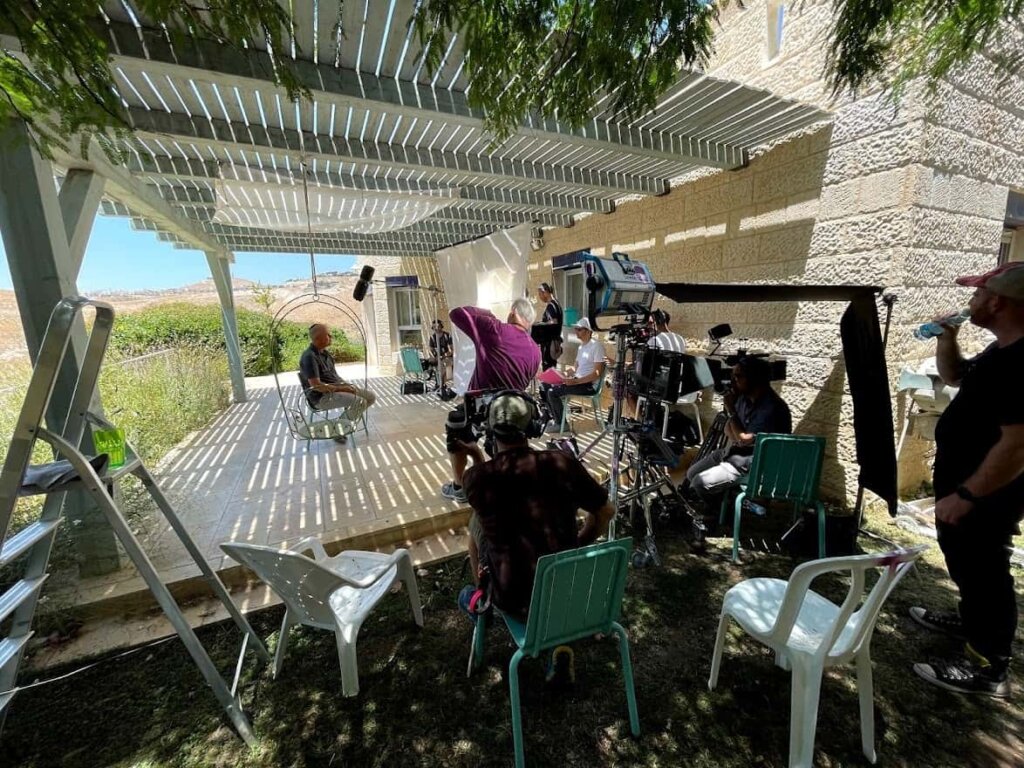
Filming the documentary on Howard and Lottie Marcus. Credit: Courtesy of the film, “Who Are the Marcuses?”

Filming the documentary on Howard and Lottie Marcus. Credit: Courtesy of the film, “Who Are the Marcuses?”
Ellen Marcus reported that she’s still in touch with the 93-year-old Buffett: “I call him Mr. Buffett. I emailed him 10 years ago after my father died and have been corresponding with him ever since.”
The two participated in a panel discussion in March 2023 after the film was screened at the Omaha Film Festival. She noted that not that “he just came—no Armani suit, no security, just his family!”
After the screening this week, Martha Graybow of New York said the film was “uplifting to watch during these very dark times for those who care deeply about Israel and its future.”
She continued, saying “I have so much admiration for the Marcus family and their astonishing generosity to Ben-Gurion University. They are true visionaries who believed in the transformative power of education and the potential for peaceful coexistence across the Middle East.”
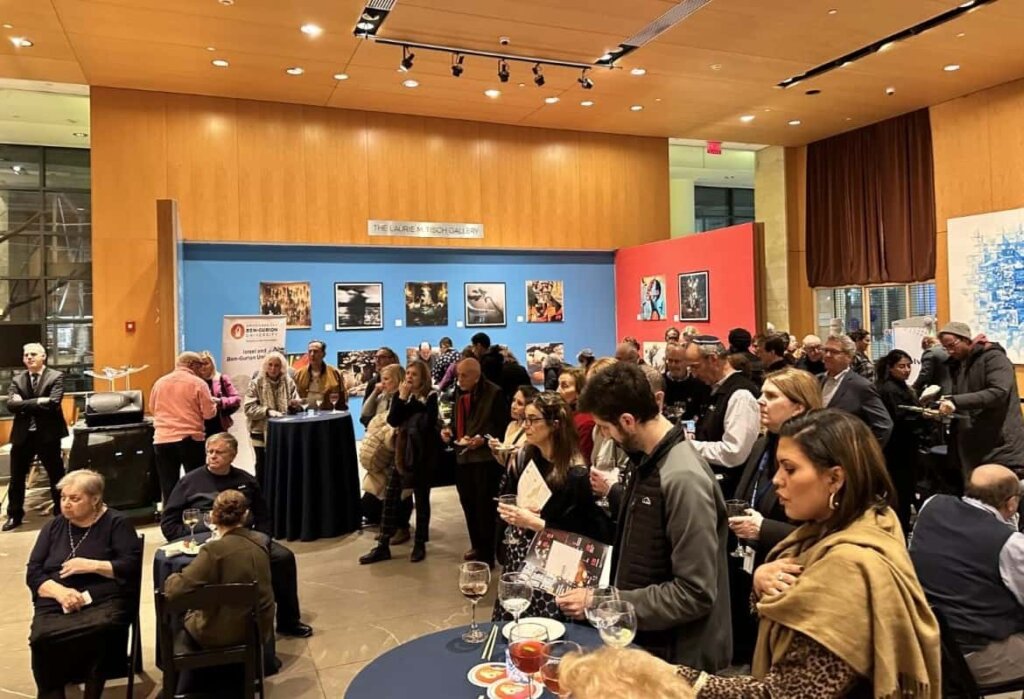
At the screening of the film “Who Are the Marcuses?” in New York City on Feb. 6, 2024. Photo by Lenore LaVine.
Brett Cohen, who lives on Manhattan’s Upper West Side, has spent significant time in the Negev, including participating in the Arava Institute’s Israel Ride in 2016, 2022, and hopefully, this year as well.
He visited communities in southern Israel such as Ofakim/Merchavim and Kibbutz Erez—partner communities with Greater Metrowest NJ Jewish Federation in his former New Jersey community—where he said he has seen “the importance of that region to the future of Israel.”
Along those lines, Cohen also noted being “deeply fascinated by climate innovation and the remarkable work being done at BGU and by others in Israel, particularly in water solutions and other climate mitigation efforts.”
Ellen Marcus, who encouraged her parents to leave their wealth for a greater purpose, is now deeply involved in stewarding the funds, ensuring their legacy continues to ripple outward.
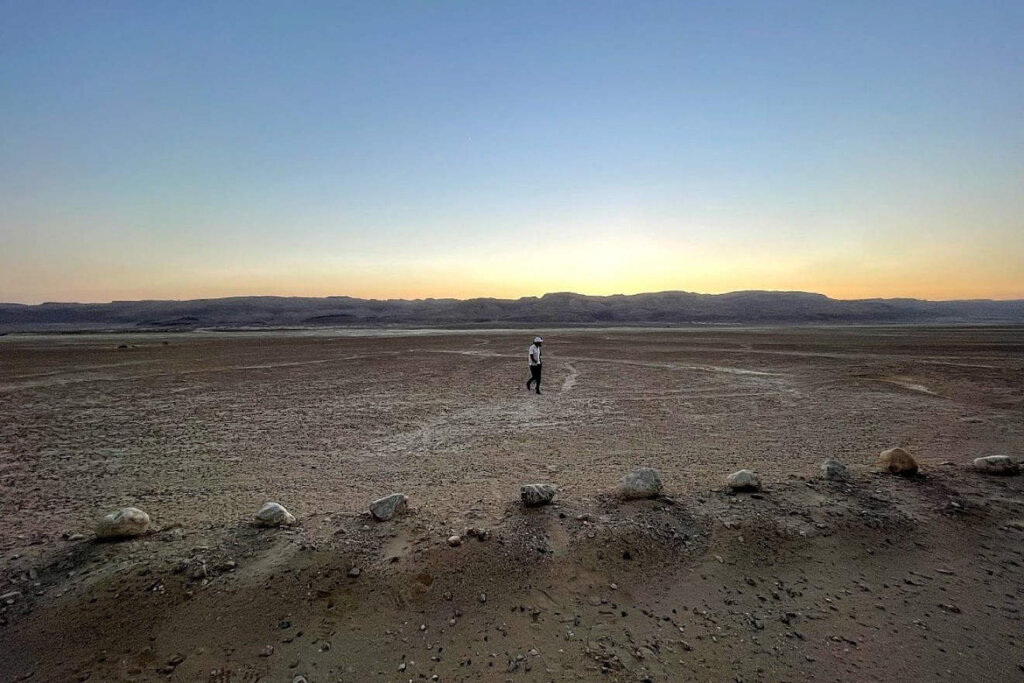
Filming the documentary on Howard and Lottie Marcus. Credit: Courtesy of the film, “Who Are the Marcuses?”
